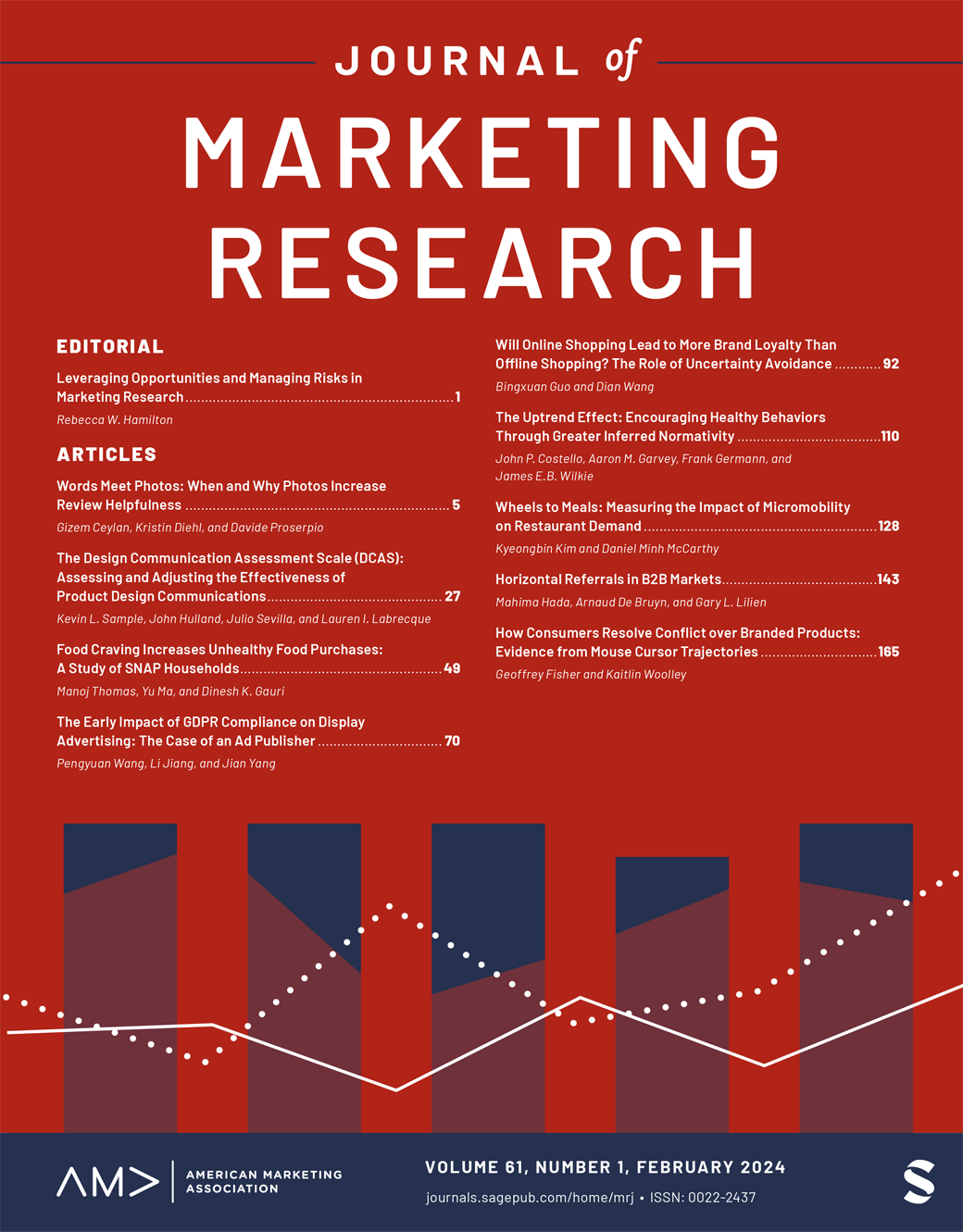GDPR合规对展示广告的早期影响:一家广告出版商的案例
IF 5.1
1区 管理学
Q1 BUSINESS
引用次数: 2
摘要
欧盟(EU)的《通用数据保护条例》(GDPR)明确规定了同意要求,可能会限制个人数据的使用,并动摇在线广告的基础。广告行业预计,GDPR合规将导致收入大幅减少,因此一直在寻求其他定向方式。利用广告发布商请求欧盟IP地址用户明确同意的事件,作者发现,对于使用点击付费模式的发布商来说,有能力利用用户行为和网页内容信息进行广告投放,并观察到高同意率,GDPR合规会对广告效果、出价和广告收入产生适度的负面影响。广告指标的变化可以用同意率的时间变化来解释。这种影响对旅游和金融服务广告客户最为明显,对零售和包装消费品广告客户影响最小。作者进一步发现,网页上下文可以弥补对用户个人数据访问的损失,因为当在呈现相关内容的网页上发布广告时,GDPR的负面影响不那么明显。研究结果表明,出版商和广告商应该在后gdpr时代利用基于网页内容的定位。本文章由计算机程序翻译,如有差异,请以英文原文为准。
EXPRESS: The Early Impact of GDPR Compliance on Display Advertising: The Case of an Ad Publisher
The European Union (EU)’s General Data Protection Regulation (GDPR), with its explicit consent requirement, may restrict the use of personal data and shake the foundations of online advertising. The ad industry predicted drastic loss of revenue from GDPR compliance and has been seeking alternative ways of targeting. Taking advantage of an event created by an ad publisher’s request for explicit consent from users with EU IP addresses, the authors find that for a publisher that uses a pay-per-click model, has the capacity to leverage both user behavior and webpage content information for advertising, and observes high consent rates, GDPR compliance leads to modest negative effects on ad performance, bid prices, and ad revenue. The changes in ad metrics can be explained by temporal variations in consent rates. The impact is most pronounced for travel and financial services advertisers and least pronounced for retail and consumer packaged goods advertisers. The authors further find that webpage context can compensate for the loss of access to users’ personal data, as the GDPR’s negative impact is less pronounced when ads are posted on webpages presenting relevant content. The results suggest that publishers and advertisers should leverage webpage-content-based targeting in a post-GDPR world.
求助全文
通过发布文献求助,成功后即可免费获取论文全文。
去求助
来源期刊

Journal of Marketing Research
BUSINESS-
CiteScore
10.30
自引率
6.60%
发文量
79
期刊介绍:
JMR is written for those academics and practitioners of marketing research who need to be in the forefront of the profession and in possession of the industry"s cutting-edge information. JMR publishes articles representing the entire spectrum of research in marketing. The editorial content is peer-reviewed by an expert panel of leading academics. Articles address the concepts, methods, and applications of marketing research that present new techniques for solving marketing problems; contribute to marketing knowledge based on the use of experimental, descriptive, or analytical techniques; and review and comment on the developments and concepts in related fields that have a bearing on the research industry and its practices.
 求助内容:
求助内容: 应助结果提醒方式:
应助结果提醒方式:


